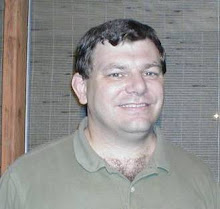As an ex-clergyman, I identified closely with much of her writing. True, her experience in ministry was almost the polar opposite of mine. Hers was a denomination that was open, at least in theory, to many expansive concepts that mine would have rejected out of hand. Her tradition settled the "women's role" argument years ago and is on its way to justice and equality for gays, lesbians, and other sexual minorities. Her church was open to diverse spiritual practices while remaining unapologetically Christian in its orientation.
Her churches were not beset with serious conflict or shrinking vitality; in fact, her last church had grown significantly and had established counseling and other ministries for the community. Despite the fact that her last church was in rural north Georgia and mine was in urban California, her church was truly progressive while mine was more rural in character.
Yet the spiritual refreshment of "leaving church" has been similar for me as it was for her. Neither of us has left church in terms of membership; we're just free to open our spiritual lives beyond the walls of the church. She suddenly didn't have anything to inhibit her from participating in the Native American spiritual ceremonies that her husband had attended and even hosted on their property (which, they learned, was considered a sacred place). Such practices brought her closer to the earth and to God, and strengthened her Christianity. The ability to do such things without fear of criticism refilled her spiritual gas tank.
For me, it was a longer process; but with the help of my wife, my church, and others, I'm discovering that the real truth in Christianity is its connection to the spirit that unifies us with each other and with the cosmos. Jesus never intended his teachings to be made into a systematic theology. Paul leaned more in that direction, but it's really Augustine's misinterpretations of Paul that form the basis for traditional Christian theology. As Marcus Borg points out, faith is not affirming a list of statements, but rather is being spiritually transformed. And there are many ways that this can be accomplished.
In some reflections on what she has kept through the transition from clergy to laity, Taylor says this about the Bible:
I will keep the Bible, which remains the Word of God for me, but always the Word as heard by generations as flawed as I. As beautifully as these witnesses write, their divine inspiration can never be separated from their ardent desires; their genuine wish to serve God cannot be divorced from their self-interest. That God should use such blemished creatures to communicate God's reality so well makes the Bible its own kind of miracle, but I hope never to put the book ahead of the people whom the book calls me to love and serve.
I will keep the Bible as a field guide, which was never intended to be a substitute for the field. With the expert notes kept by those who have gone before me, I will keep hunting for the Divine Presence in the world, helped as much by the notes they wrote in the margins while they were waiting for God to appear as by their astonished descriptions of what they saw when God did. I know that nine times out of ten, the truth scripture tells is the truth about the human search for God. Still, with the help of the guide, there is always the hope of glimpsing the bright dove that splits the sky, fluttering in full view before turining with a whirr and a cry to make its clean getaway.

No comments:
Post a Comment